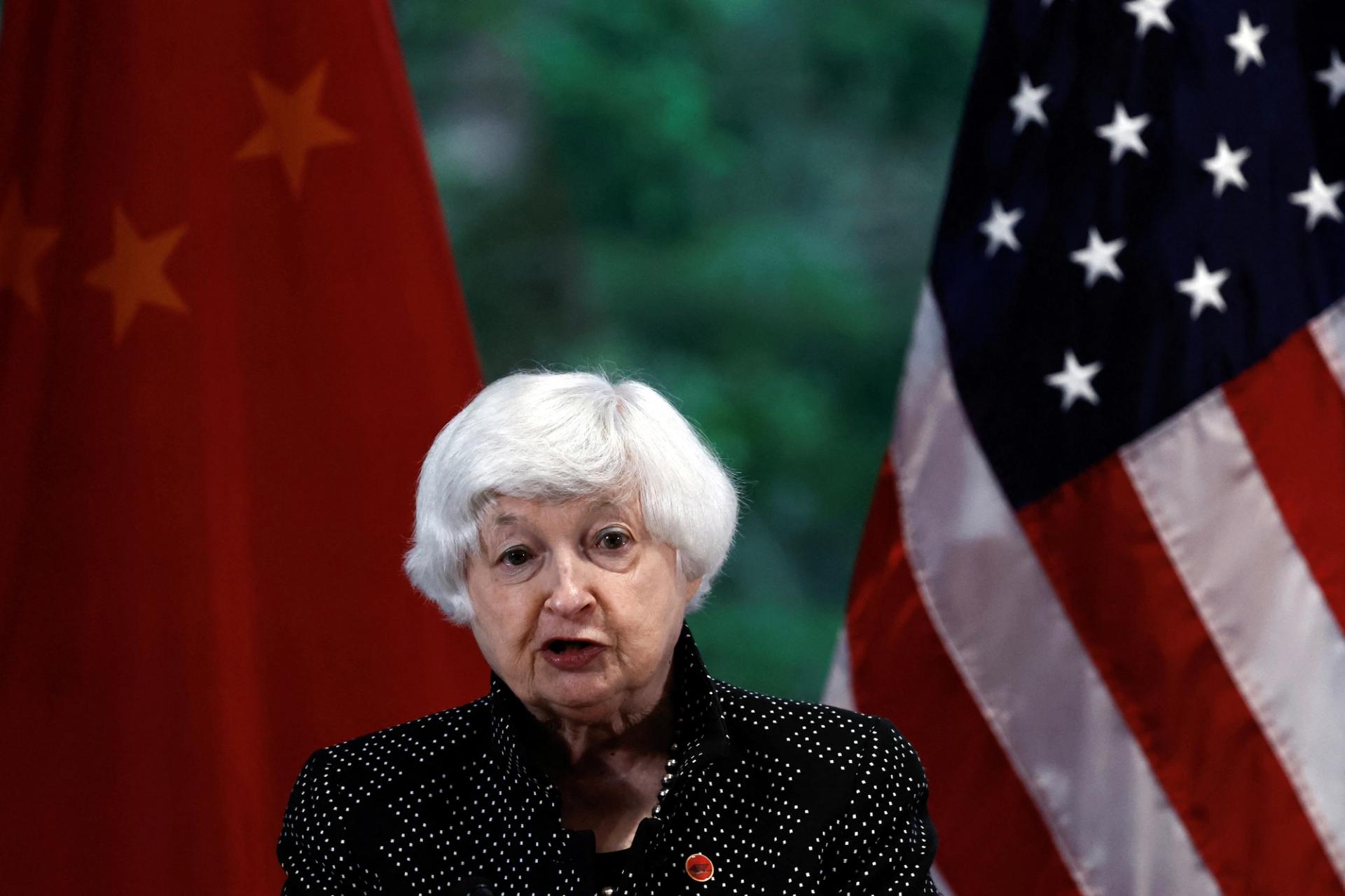The News
U.S. Treasury Secretary Janet Yellen warned of China’s growing domination in manufacturing at the start of a four-day trip to the country. Yellen called Beijing’s treatment of global companies “unfair,” and pointed to the risk of overproduction by Chinese manufacturers.
U.S.-based firms have been sidelined by Chinese companies, she added, calling for a shift in Beijing’s policy. “Ending these unfair practices would benefit China by improving the business climate here,” she said at an event held by the American Chamber of Commerce in China.
SIGNALS
Yellen’s China views have shifted
Yellen was previously an advocate of importing goods from China. That view has shifted, Yellen told The Wall Street Journal. “People like me grew up with the view: If people send you cheap goods, you should send a thank-you note,” she said, adding “I would never ever again say, ‘Send a thank-you note.’” But while her stance on China is hardening, the treasury secretary has maintained a positive attitude towards Washington’s relationship with Beijing. Despite growing concerns with the way China has handled trade, “I think we have a deep economic relationship with China,” she said. “And I don’t want to see us sacrifice it because I believe it’s beneficial to us and beneficial to them.”
Beijing has dismissed Yellen’s concerns
The Chinese government responded to the U.S.‘s criticism of its production oversupply this week, with foreign ministry spokesperson Wang Wenbin telling a press conference that “It is quite clear to all whether it is ‘excess production capacity’ that the US is truly concerned about,” Chinese state-run media outlet The Global Times reported. American crackdowns on Chinese manufacturing aren’t “de-risking,” Wang argued, but rather creating new risks.
China’s economic strategy has shifted, too
Beijing’s policies have changed drastically under the leadership of Xi Jinping. He is trying to remake China’s economy while faced with a grim outlook, The Economist wrote. The Chinese leader has fixated on “techno-utopianism, central planning and an obsession with security” with an “ambition to dominate the industries of tomorrow.” Xi’s plan, the outlet argued, is flawed: China’s production goals currently ignore consumers, who have wound down their massive purchasing power in recent years. Pushing consumers to spend more money requires sprawling social safety nets, which Xi has typically avoided, a reluctance which “reflects his austere mindset. He detests the idea of bailing out speculative property firms or giving handouts to citizens,” The Economist argued.

